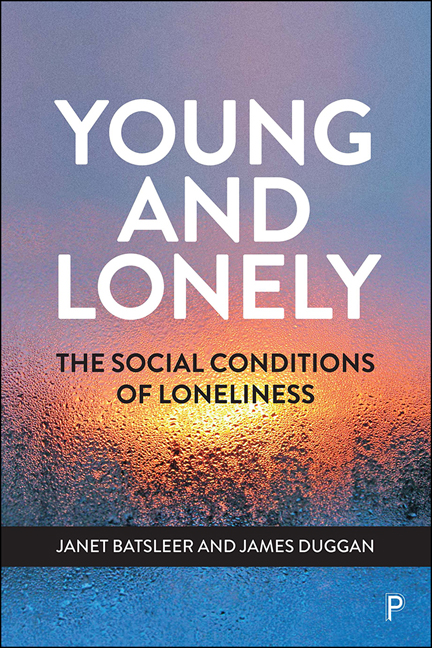Book contents
- Frontmatter
- Contents
- Notes on the Authors
- Acknowledgements
- Preface
- 1 Animate, Attune, Amplify
- 2 Finding Oneself a Loneliness Agenda
- 3 I’M New Here: Creating a New Research Project and A Young Person Led Research Agenda
- Part I The Social Conditions of Loneliness
- Part II The Experience of Loneliness
- Part III Building Friendship and Connection
- References
- Index
8 - Loss, Grief and Loneliness
Published online by Cambridge University Press: 18 March 2021
- Frontmatter
- Contents
- Notes on the Authors
- Acknowledgements
- Preface
- 1 Animate, Attune, Amplify
- 2 Finding Oneself a Loneliness Agenda
- 3 I’M New Here: Creating a New Research Project and A Young Person Led Research Agenda
- Part I The Social Conditions of Loneliness
- Part II The Experience of Loneliness
- Part III Building Friendship and Connection
- References
- Index
Summary
‘My dog died and I felt very very lonely.’ (Guy, aged 11, Stoke)
‘At my grandad's funeral I felt very very lonely.’ (Pete, aged 12, Stoke)
The children in the youth group we met in Stoke were younger than any of the other groups we met and, in contrast to all the other groups we engaged with, found it easy to acknowledge times when they felt lonely. The difficulty in acknowledging vulnerability in adolescence and young adulthood when young people are supposed to be learning to ‘stand on their own two feet’ is an important theme of this study. The youngest people we met during the course of the research seemed to be the ones who found it easiest to speak about loneliness, and they immediately connected this experience with bereavement. In this chapter, we move to look in depth at some of the most extreme and difficult experiences associated with loneliness.
Loss and its accompanying loneliness have often been associated with the bereavements of later life, but loss, bereavement and grief are also strongly present in early experiences of loneliness. This may be a result of experiencing the death of someone loved, but loss also occurs with the experience of parental divorce and separation or of moving into foster care. Sometimes loneliness results from losing a feeling of safety and good connection which happens as a result of violence. Then the stigma, shame and self-reproach associated with becoming a victim of violence is redoubled in a further stigma associated with loneliness. Drug treatments for grief are currently being piloted and it seems possible that grief, like loneliness, may become medicalised rather than being accepted as a necessary and valuable though painful element of our reaction to loss. This chapter explores the loneliness associated with loss and grief and also the loneliness associated with shame and social isolation.
Some of these experiences of loneliness associated with loss are acute but momentary, and they show that loneliness is an unavoidable aspect of being alive and grieving the loss of someone loved. They are not something to be ashamed of and yet loneliness itself is often a source of shame and stigma in a world that seems to require the performance of happiness and success.
- Type
- Chapter
- Information
- Young and LonelyThe Social Conditions of Loneliness, pp. 85 - 94Publisher: Bristol University PressPrint publication year: 2020

